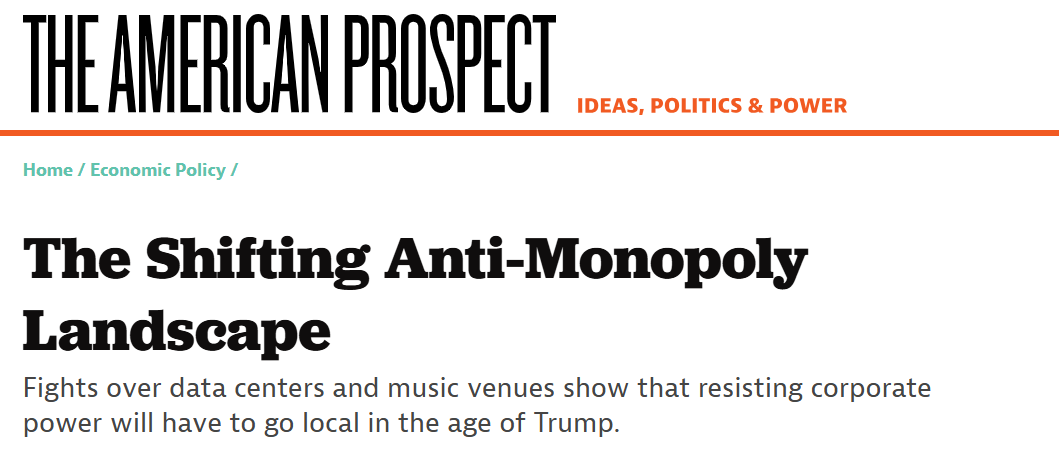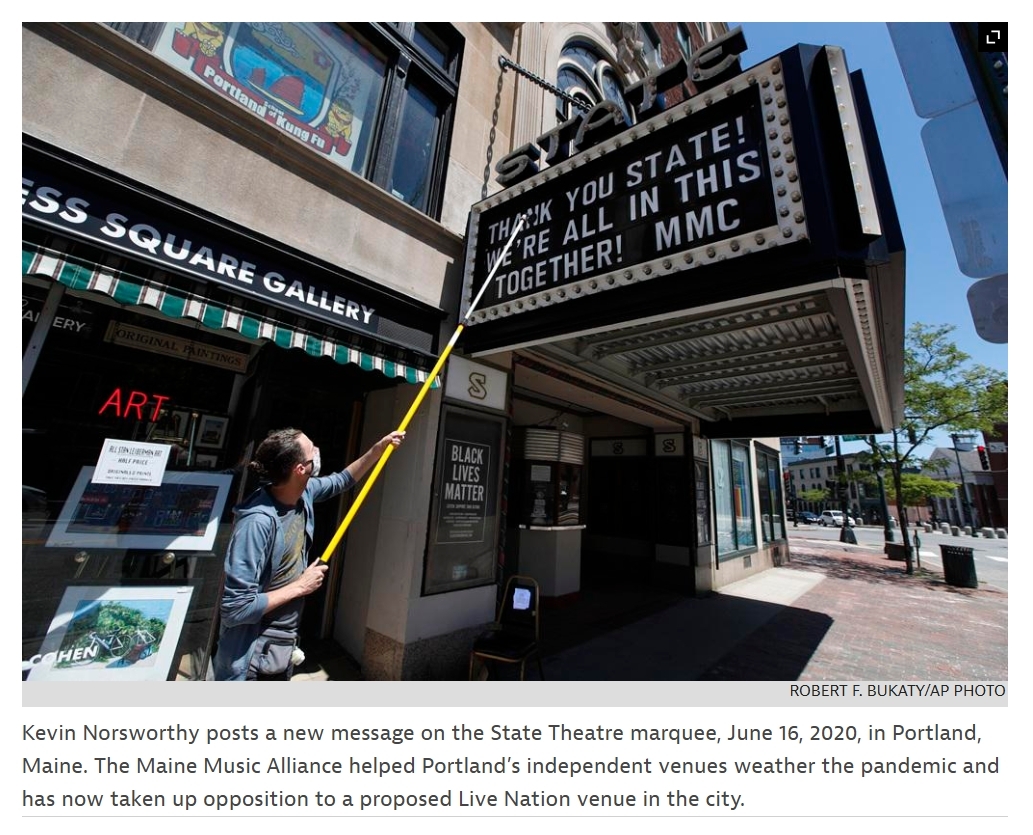The Shifting Anti-Monopoly Landscape
 https://prospect.org/economy/2025-09-02-shifting-anti-monopoly-landscape/
https://prospect.org/economy/2025-09-02-shifting-anti-monopoly-landscape/

With live music venues open and thriving in Portland, Maine, Scott Mohler didn’t expect to have to help with another rescue operation. Mohler founded his organization, the Maine Music Alliance, in 2020, as live music venues in his hometown struggled to remain afloat amid the industry’s COVID-induced collapse. The Alliance’s work helped Portland’s scores of venues and event spaces remain alive until the pandemic abated and bands once again took to the stage. With the scene’s vibrancy restored, Mohler largely mothballed the Alliance, until word broke last December that Live Nation, the most powerful and ubiquitous presence in live music, had set its sights on Portland.
Live Nation’s plan to open a 3,300-seat live music venue in the heart of downtown triggered a visceral reaction from local venues, musicians, and fans worried about the company’s long history of shutting out smaller venues from popular artists and tours, and forcing fans to use its Ticketmaster subsidiary. Mohler and the Maine Music Alliance reactivated, and by the time the project came before the city council in August, more than 2,000 Portland residents, along with two dozen independent venues and arts spaces, had signed a petition to put the project on hold. Around 150 concertgoers, musicians, and venue owners packed city council chambers, and by the end of a marathon eight-hour session, had convinced six of the city’s nine councilmembers to put the development on ice until at least next March.
The resistance to Live Nation’s incursion into Portland is the latest expansion of where, and often how, fights against corporate power are happening. Over the past several years, a rising anger at the corporate dominance of our day-to-day lives has triggered widespread resistance to monopolies, from union organizing in Amazon warehouses to the critical view of corporate consolidation and monopoly within the Biden-era White House. Amid the national anti-monopoly resurgence, local-level resistance has risen as well. State officials in recent years have moved to block mergers, prosecute monopoly abuses, and draft new, stronger laws to check corporate power. In Queens, New York, activists and local electeds beat back Amazon’s attempt to set up a second headquarters in the borough.
Whatever chaos might exist in Washington, D.C., local opposition to corporate incursions and abuse has been sustained and often successful. With the Trump administration
weaponizing antitrust enforcement into a corrupt pay-to-play system, local resistance to corporate domination may well be all that’s left in the near future. Today, corporate intrusion often happens at the most local levels of American life—data center by data center, warehouse by warehouse, dollar store by dollar store—where residents suffer the harms more acutely. As community resistance to these hyperlocal projects has grown, local leaders are increasingly using what tools they have to stop corporations from expanding into their towns and cities, and to otherwise fight back against corporate rip-offs and land grabs.
snip

